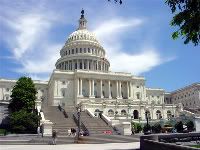Investor Uncertainty Causes Slowness in Moving to Renewables
A reader from Colorado writes in:
I have argued for a number of years that the fundamental problem with the conversion is the large amount of capital that everyone has to invest, and with considerable uncertainty. Some examples:
- For a residential homeowner, insulation and electrification of heating is a major investment — $15-20K for a ground-source heat pump for an existing home, for example. New windows at >$1K per window. Such investments are generally NOT reflected in the price one gets when reselling and take a VERY long time, especially relative to the average time that the owner stays in the house, to recover the investment.
- Building a wind farm can be a very uncertain thing. In most cases, I’ll be trying to negotiate construction of the transmission link to get my power to market. T. Boone Pickens’ grand adventure died when it turned out that the state wasn’t going to build a transmission system for him. There’s usually no guarantee that all of the power I can generate will be dispatched — consider the recent events in the Pacific NW where wind generators have been told to idle turbines.
- Electrifying the freight rail network in the US is a very large undertaking — half of all freight tonnage in the US is coal, and it’s a long haul from Wyoming to the places that much of that coal is burned. Locomotives have to be replaced. Aside from coal, the railroads largely gave up on scheduled freight service years ago. To replace long-haul trucking, the railroads will have to go back to schedules, and that means more rolling stock.
The biggest risk, IMO, as to whether the US can weather the transition storm, is the availability of capital. And it’s not just the total, but the timing, and avoiding bad decisions. Personally, I think ethanol is a dead-end (opinions vary, of course). Billions of dollars put into ethanol plants is money that, again IMO, should be going into electrification of transportation. In Colorado, where I live, fast convenient light rail in the Denver suburbs will almost certainly displace more gasoline usage than the construction of ethanol plants. Having done that, we could worry about how to replace coal and natural gas.
It’s all about the capital and the uncertainty surrounding it.
You make some excellent points here. Lack of investor certainty is definitely a cause – perhaps the cause — of the slowness to move to renewables. But the question in my mind is: What’s causing investor uncertainty?
It seems to me that it lies in Washington D.C.
As we can all see, the cause of renewables is receiving precious little support from our elected leaders at the federal level. The politicians are hard at work, developing their strategies and sharpening their rhetoric aiming for victory in 2012, and are realizing that it is a piece of cake to sell voters the idea that clean energy is too expensive and too dangerous to the economic recovery. The fact that this is untrue does not come into play. Can you remember the last time that “the truth” vs. “the story” was prominent in political discourse? I can’t.
Thus:
1) Would-be investors in renewables remain nervous, as they simply cannot figure out what will happen here next. Understandably, they’re taking their capital elsewhere, or just keeping it parked safely on the sidelines. And,
2) The politicians’ buddies in oil and coal (note that the oil industry employs 7000 lobbyists) continue with business as usual, unhampered by the pesky competition that renewables represents.
Meanwhile, we have (or at least had) a few brave people in some of the state governments who have passed some significant legislation at that level. Thus, the clean energy industry can at least continue to limp forward.


Like many changes the path to a Greener economy may have to be taken in small steps. One source of progress will come from companies looking at their energy bills and searching for lower cost alternatives.For example: LED lighting generates savings as soon as it is installed.
The development of PPAs, and Utility requirements to buy from Green Energy generators also provide economic incentives to Go Green.
At present Green progress is going to be made project by project, with that economic factors that exist now.